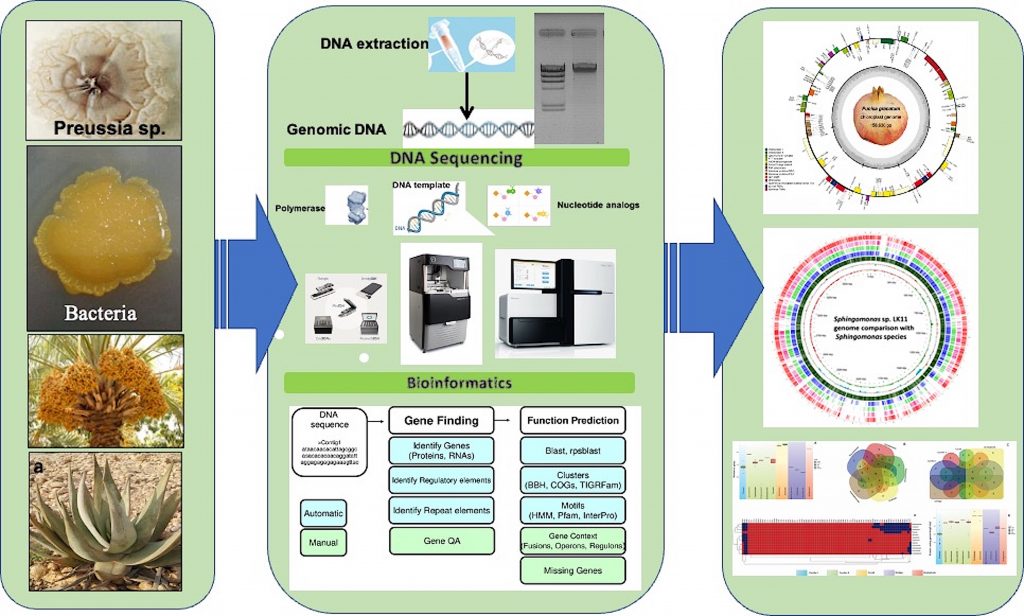Genomics
Genomics has evolved into a very specialized field. Our lab focuses on both plant and microbial genomics. There are more than 8.7 million species of plants and animals, and only a meager number of species have been sequenced so far. For example, in the case of plants, there are more than 400,000 species, out of which only a couple of thousand have been fully sequenced. A similar perspective has been drawn for microbial species. The Earth’s biodiversity of microorganisms is more than a trillion species, and only 60,000 have been sequenced so far. Although there are various consortia developing that have targeted sequence-specific microbiomes and microbial diversity, a lot still has to be done.

We try to understand important questions like:
- What is the genome architecture, size, gene content, and features available for medicinally, ecologically, and economically important plants and microbes?
- What are evolutionary history and phylogenomic organization and how it survives under specific growth conditions.
- What are the biosynthetic pathways of bioactive metabolites and how their abilities can be improved to produce higher?
Approaches:
This research work involves several methodologies such as:
- Whole-genome sequencing the bioactive microbial strains and plants that possess unique ecology uses and commercial values with NovaSeq 6000 Illumina and PacBio SMRT
- Bioinformatic analysis with the help of UH cluster and available computational resources in the lab
- Identification of gene-clusters and biosynthetic pathways in potential microbes
- Gene cloning, transformation, and genome editing technologies to develop competent microbes
- Evolutionary and phylogenomic perspectives on the taxonomic placement of the species in the phyla
- Elucidating the genome structure, organization, size, and comparative genomics to identify unique genes and features
Current Projects:
- Organelle (plastid and mitochondrial) genomics of plants, their structure and evolution
- Frankincense whole genome sequencing and resin biosynthesis pathway